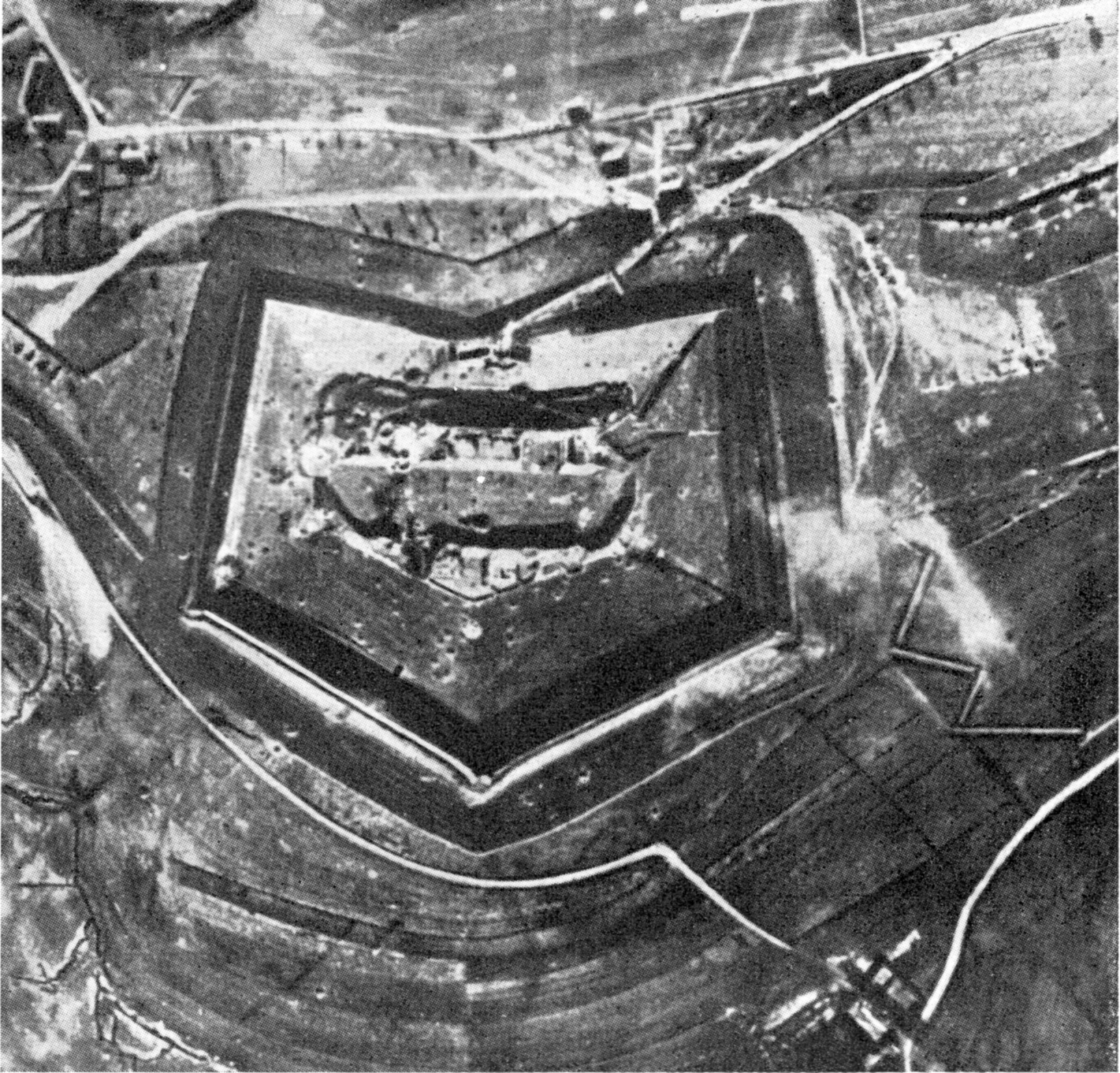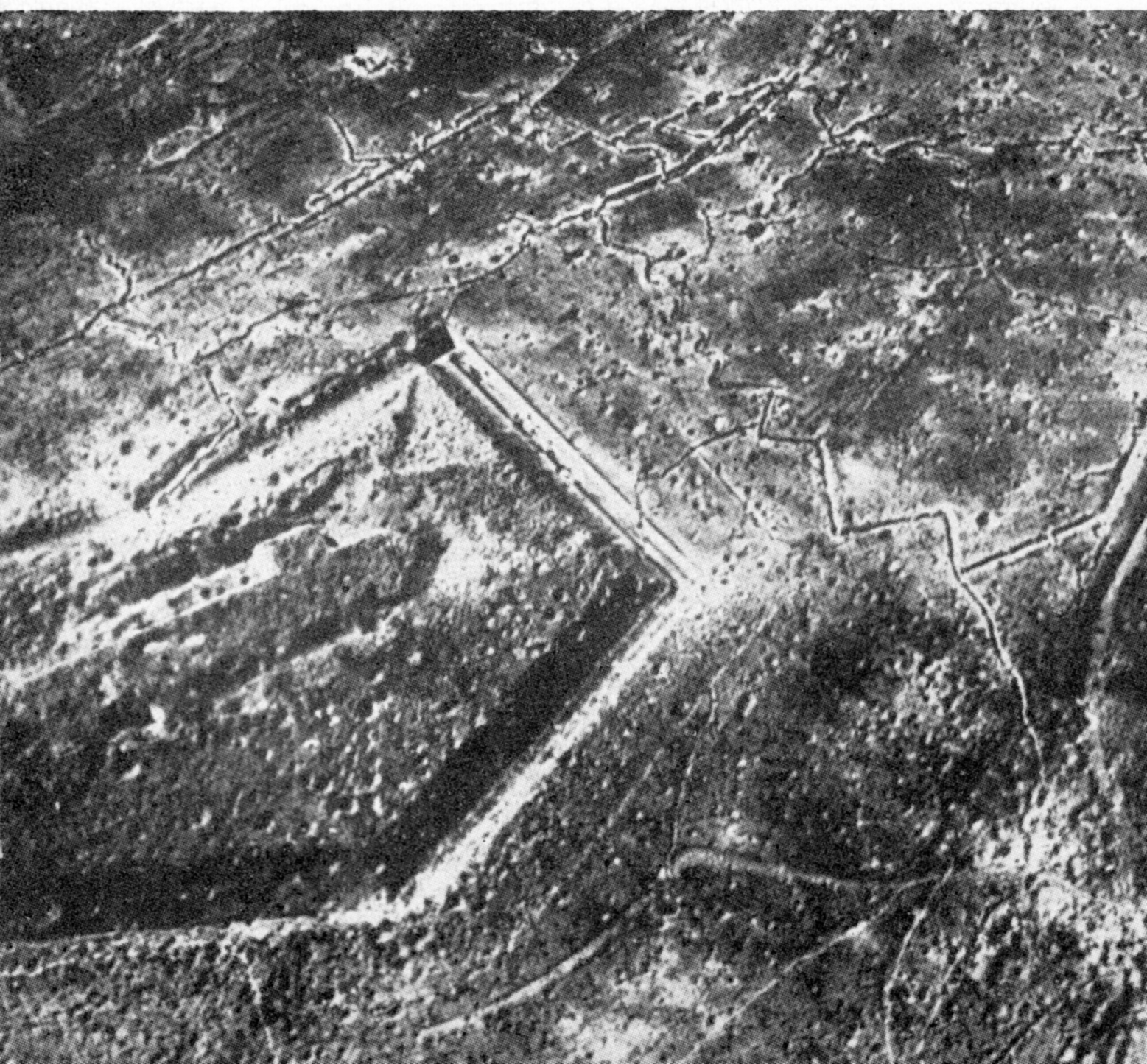|
Fangz posted:That is all well and good if you have those toys, and plenty of time to use them, but that is not always the case. Yep, there's obviously a ton of possible scenarios. But if your enemy is bound to a strategy of static defense and having no real way of counter-attacking, like the Finnish army was in the Mannerheim line 1939-40, it's a matter of spending a few days or weeks figuring out how to use heavy artillery most effectively. The bunkers are not going to move, and it's too late for the enemy to build back up defensive lines, so you might as well take your time demolishing them if you can't go around them. In that particular scenario it's not a waste of resources for the defender to build fortified lines, as they have no real alternatives. But in the end, it's only going to act as a speed bump and by 13 May 1940 everything is falling apart.
|
|
|
|

|
| # ? May 16, 2024 19:26 |
|
Nenonen posted:Yep, there's obviously a ton of possible scenarios. But if your enemy is bound to a strategy of static defense and having no real way of counter-attacking, like the Finnish army was in the Mannerheim line 1939-40, it's a matter of spending a few days or weeks figuring out how to use heavy artillery most effectively. The bunkers are not going to move, and it's too late for the enemy to build back up defensive lines, so you might as well take your time demolishing them if you can't go around them. In that particular scenario it's not a waste of resources for the defender to build fortified lines, as they have no real alternatives. But in the end, it's only going to act as a speed bump and by 13 May 1940 everything is falling apart. Or you just bypass them.
|
|
|
|
You want overrated generals? Well, have you ever heard of General Golz? Yes, the Hemingway one. The noble, brave and capable commander that the Republican general staff kept down in "For Whom the Bell Tolls". Well, the real Golz was named Karol Swierczewski and used the pseudonym "Walter" during the Spanish Civil War. An ethnic Pole from Warsaw, he was a firm believer in communism. He got conscripted by the Tzarist Russian army in 1916, joined the Bolsheviks at first opportunity. Fought under Tukhachevsky during the Polish-Soviet War, took part in butchering the Tambov rebellion. Later on he trained saboteurs smuggled by the Comintern to Poland. Finally he went on to command the XIV International Brigade during the Spanish Civil War, where he met Hemingway, Tito and many other luminaries. He did fairly well back then, although he was far more concerned with rooting out "fascist agents" in his units than with actually, you know, fighting the Franco forces. He earned the nickname of "the general who bows to no bullet". That was because it was in Spain that he started to develop his trademark alcoholism: he would get so drunk he'd just get out of the trenches under fire and walk around - sometimes in nothing but his underwear. Despite this, he was later promoted to command of a full division. At the outset of Operation Barbarossa, he commanded the 248th Rifle Division of the Red Army. In October 1941, the division (along with about a dozen others) was surrounded near Vyazma and shattered. Out of ten thousand soldiers in the unit, eight men (including Walter) made it out of the pocket. Swierczewski was, of course, completely shitfaced the whole time. Stalin liked him, though, so he didn't face a firing squad. He did get transferred to a rear-area command. Two years later, the Soviets started forming the 1st Polish Infantry Division. It was supposed to become a basis for an entire Polish army, led by Zygmunt Berling. Walter was put into the division - and later army - HQ as Berling's second in command. In August 1944, elements of the 1st Polish Army were preparing to cross the Vistula. Swierczewski ostensibly took a bath in the river and said that - since he didn't get shot at - it was obviously safe to cross and there were no Germans on the other side. The troops went in with little preparation, support and reconnaissance as well as not enough numbers. 1500 died when it turned out that there actually was a lot of Germans across the river. Berling got canned for this blunder, while Walter received an order to form the 2nd Polish Army under his direct command. And he did. However, the army was understaffed and under-equipped. Only one division had a Polish commander, the rest had to be "borrowed" from the Red Army - and such "borrowings" were quite common all the way down to NCOs and below, so in many units the troops and their commanders did not speak the same language. The troops lacked boots, uniforms, transport and weapons. They had to forage on their own and march hundreds of kilometres on foot. Walter was mostly busy making sure he eliminates all the fascist agents in his force and getting his drink on, so naturally desertions were commonplace. In April 1945, he and his men found themselves marching through Lusatia. Swierczewski wanted to capture Dresden at all costs, so he ordered his armour to push for the city. He's confident that the Germans have nothing left but some Volskssturm and an occasional bunch of regular troopers, so he says "gently caress it" and decides being sober is for posers. Meanwhile, his army resembled Swiss cheese, scattered all over the region. He was drunk, had a gun and did not allow anyone to approach staff maps and try to fix poo poo. He ignored reports of stiffening resistance and lost contact with several of his units. The Germans, in turn, enjoyed perfect recon and attacked him with Brandenburg airborne division and "Hermann Goering" panzer division - pretty much the best they had available at this stage of the war. Needless to say, it was a massacre. The Germans took over Bautzen, smashed any Polish units they could find and nearly killed Swierczewski himself. Seriously, look at this mess. Konev had to bail him out and shift his forces to meet the German offensive coming from Bohemia, which might have cost him Berlin. The 2nd Army lost 2/3 of its armour, 20% of its guns and about 8 000 dead. Some regiments lost 75% of their number. Swierczewski, of course, got promoted. After the war he became an MP. He died in 1947 in a skirmish when he went to inspect some border post, most likely killed by Ukrainian nationalists (though some argue it was a false flag op to get an excuse to deport Ukrainians around). The communist Polish historians and contemporaries praised him as a hero. They even named a mountain after him. To recapitulate: a man who was a raging alcoholic, a paranoid sadist and pretty drat incompetent keeps getting promoted and somehow gets away scot-free after each and every one of his blunders throughout three different wars. He is overrated not only by historians, politicians of several countries, and his military superiors, but even by a Nobel Prize laureate. All while being horrible enough to lose a battle against the Germans in April 1945. I don't think you can top that.
|
|
|
|
Alchenar posted:Or you just bypass them. In the case of Mannerheim line, no you don't. Or you get Suomussalmi/Raate road, or you go to Kollaa River only to meet with Simo Häyhä. The Karelian Isthmus is significant because it's the shortest route between Leningrad and Helsinki, a narrow isthmus and the only approach with a road network of a sort. North of Lake Ladoga you're stuck to one or two roads.
|
|
|
|
Tevery Best posted:I don't think you can top that. Edit: His daughter owned though.
|
|
|
|
Nenonen posted:In the case of Mannerheim line, no you don't. Or you get Suomussalmi/Raate road, or you go to Kollaa River only to meet with Simo Häyhä. When it's Metz though...
|
|
|
|
Can anyone explain the strategic thinking behind Napoleon's campaign in Egypt? I've heard that it was an attempt to link up with the Tipu Sultan and smash Great Britain's influence in India, but wouldn't it have been simpler to ship Napoleon's army to India instead? Or was it merely an attempt to remove a popular general from the turmoil of Revolutionary France?
|
|
|
|
brozozo posted:Can anyone explain the strategic thinking behind Napoleon's campaign in Egypt? I've heard that it was an attempt to link up with the Tipu Sultan and smash Great Britain's influence in India, but wouldn't it have been simpler to ship Napoleon's army to India instead? Or was it merely an attempt to remove a popular general from the turmoil of Revolutionary France? The British Navy controls the exit to the Mediterranean, launching such an expedition without control of the seas is impossible. Fangz fucked around with this message at 00:04 on Nov 29, 2013 |
|
|
|
Fangz posted:That is all well and good if you have those toys, and plenty of time to use them, but that is not always the case. Boastful statements generally aren't made while considering the worst-case scenario.
|
|
|
|
Alchenar posted:When it's Metz though... How were fortresses at all useful in the age of things like tanks, air power, explosives and reliable artillery? It seems at first stab that holing up in a fortress is completely stupid against any army worth the name by the time things have advanced to WW2-level tech. Edit: The answer on last page seems to be "they weren't, unless you happened to not have air power, artillery, etc." Welp.
|
|
|
|
Flesnolk posted:How were fortresses at all useful in the age of things like tanks, air power, explosives and reliable artillery? It seems at first stab that holing up in a fortress is completely stupid against any army worth the name by the time things have advanced to WW2-level tech. Well, it's a defensive position that's stronger than it would ordinarily be. Any position will succumb to sufficient firepower, but fortification increased the amounts necessary. I mean if we want to talk about fortresses in WW2 then the big obvious example is the Maginot line, and we all know how that turned out.
|
|
|
|
Not to mention that there is no such thing as an impregnable fortress, in any period. Any fortress can, in theory, be overcome--the same people whose job it is to build the things also figure out how to destroy them/assault them. What changes in the 20th century is how fast you can do it.
|
|
|
|
Flesnolk posted:How were fortresses at all useful in the age of things like tanks, air power, explosives and reliable artillery? It seems at first stab that holing up in a fortress is completely stupid against any army worth the name by the time things have advanced to WW2-level tech. Before the battle of Verdun:  After:  This is after the French were pushed out early on in the battle of Verdun, and then the Germans forced out after another full year. If you take a look at it today, the majority of the actual structure is still there and still solid. It was taken back by storming it with three infantry divisions, co-incidentally while the Germans were evacuating it anyway after someone set off one of the magazines by accident. The number of French soldiers that died trying to take it back was numbered in the tens of thousands, and it was under 16" gun bombardment for a few days, after more than a million smaller artillery shells were fired at it. In the end it fell to a cooking fire that got out of hand. Think about that for a while.
|
|
|
|
gradenko_2000 posted:I wouldn't consider Patton a bad commander. On the contrary, he was probably one of the few generals with the aggressiveness and mobile drive to match the likes of Rommel, Guderian, Manstein, et al. It's just that what's acceptable for a general in Nazi Germany isn't going to be acceptable for an army of a democracy. Oh crap, i thought Patton was MacArthur. The pipe addict is the one i never considered that competent. Not that who i thought was MacArthur ever seemed that sane either. Arquinsiel posted:In the end it fell to a cooking fire that got out of hand. Think about that for a while. The powder lit up and naturally found its way to the ammo depot, blowing up the entirety of the deposit with a blast so spectacular that it killed at least 600 soldiers inside the fort and is believed to have also killed and maimed French soldiers outside the fortress. Make sure your soldiers aren't leaving gunpowder all over the place during an artillery bombardment.
|
|
|
|
Patton literally critisized commanders because they weren't taking enough casualties. Admittedly, he probably meant it as a way of saying that you won't win the war if you are unwilling to take risks, but still.
|
|
|
|
Fangz posted:The British Navy controls the exit to the Mediterranean, launching such an expedition without control of the seas is impossible. That's true, but Great Britain was also able to exert a large amount of force over the Mediterranean itself. Napoleon's convoy to Egypt was able to evade Nelson but at great cost once the expeditionary force disembarked. Did France honestly believe such an expedition was worth the expenditure of men and ships? Was Napoleon really expected to conduct an overland campaign all the way from the Nile to India? Furthermore, hadn't the Ottoman Empire been France's nominal ally for centuries? If campaigning all the way to India had been the plan, couldn't France negotiate safe passage?
|
|
|
|
brozozo posted:That's true, but Great Britain was also able to exert a large amount of force over the Mediterranean itself. Napoleon's convoy to Egypt was able to evade Nelson but at great cost once the expeditionary force disembarked. Did France honestly believe such an expedition was worth the expenditure of men and ships? Was Napoleon really expected to conduct an overland campaign all the way from the Nile to India? Furthermore, hadn't the Ottoman Empire been France's nominal ally for centuries? If campaigning all the way to India had been the plan, couldn't France negotiate safe passage? I don't think the Egyptian expedition was made purely for strategic purposes.
|
|
|
|
Panzeh posted:I don't think the Egyptian expedition was made purely for strategic purposes. So it really was just the Directory shuffling Napoleon off to somewhere they thought he couldn't do too much damage?
|
|
|
|
Come to think of it, what happened to relations between France and the Ottoman Empire after the revolution? Suddenly France is all different and they king's guillotined and meanwhile the Sultan is the autocratickest of the autocrats. Did they assume they were safe since all of Central Europe separated the two powers or did they start getting nervous?
|
|
|
|
Flesnolk posted:How were fortresses at all useful in the age of things like tanks, air power, explosives and reliable artillery? It seems at first stab that holing up in a fortress is completely stupid against any army worth the name by the time things have advanced to WW2-level tech. Fortress CAN work, if the defenders are well lead - see the Siege of Tobruk. Also the various channel ports that held out till the end of the war.
|
|
|
|
A fortress or any other defensive position buys you two things. Time and effort. It slows the enemy down if you built the fortress on something the enemy must have (rather than something they can just walk around). It also takes a great amount of effort (assuming you built the thing competently). A good commander should be able to leverage these things to gain some sort of advantage. That is basically how you use a fortress. No fortress is impregnable, although some might be hellish to actually capture, with enough men, materials and time any single place can and will fall. That said, not being worth it is also a valid goal when building fortifications, see Switzerland.
|
|
|
|
I always thought that giving up the fixed coastal artillery when your geography is like Finland's or Sweden's is pretty drat stupid. The reason that's been given in Finland is that the forts are vulnerable to air attack but in case of war, you'd probably rather have the enemy expend their air assets on trying to bomb T-55 turrets that are sitting on top of islands rather than say your army's mechanized components.
|
|
|
|
Kemper Boyd posted:I always thought that giving up the fixed coastal artillery when your geography is like Finland's or Sweden's is pretty drat stupid. The reason that's been given in Finland is that the forts are vulnerable to air attack but in case of war, you'd probably rather have the enemy expend their air assets on trying to bomb T-55 turrets that are sitting on top of islands rather than say your army's mechanized components. Stand off weapons with laser or GPS guiding make large scale static fortifications pretty useless, if you know where they are.
|
|
|
|
It seems that having some truly strategically positioned fortresses littered throughout your territory, overseeing chokepoints and communications, wasn't useless even throughout the WWII. Hero Cities / Hero Fortress of the USSR come to mind, so do fortified cities of China. Those positions often did give way to the assaulting force, but not without causing some much needed delays and disruption. What could be considered wasteful is fortification systems that considered entire national frontier to be strategically vital, and didn't have much regard for enemy's ability to circumnavigate huge swaths of these forts. It ddin't work for France, it didn't work for Czechoslovakia (though some nationalists still claim "If only we had defended ourselves, our forts would have bloodied Hitler's nose!", which is nonsense), and ultimately it didn't work for Germany.
|
|
|
|
steinrokkan posted:It seems that having some truly strategically positioned fortresses littered throughout your territory, overseeing chokepoints and communications, wasn't useless even throughout the WWII. Hero Cities / Hero Fortress of the USSR come to mind, so do fortified cities of China. Those positions often did give way to the assaulting force, but not without causing some much needed delays and disruption. IIRC the purpose of the Maginot line was to force the Germans to go through the north. The French expected them to take the sensible option of going through the plains in the north where the best French forces were waiting, the Germans took the lucky gamble of going through the Ardennes forest and caught them by surprise. That's the version I know, somebody will probably correct me.
|
|
|
|
Comstar posted:Stand off weapons with laser or GPS guiding make large scale static fortifications pretty useless, if you know where they are. Plus coastal infantry with long-range AT missiles gives you pretty much the same capabilities with less vulnerability and maintenance.
|
|
|
|
brakeless posted:Plus coastal infantry with long-range AT missiles gives you pretty much the same capabilities with less vulnerability and maintenance.
|
|
|
|
Comstar posted:Stand off weapons with laser or GPS guiding make large scale static fortifications pretty useless, if you know where they are. Worth bearing in mind that those precision weapons are relatively recent things.
|
|
|
|
Alchenar posted:Worth bearing in mind that those precision weapons are relatively recent things. In widespread application, adoption, and use, yes. Laser guided bombs have been used for more than 40 years now though, and the big Anti Tank Guided Missile scare was in 1973. However, from a superpower perspective, I'd say that nuclear weapons put an end to any thought of fortification efforts at the front well before that.
|
|
|
|
As far as I'm concerned, it's been the future since 1494.
|
|
|
|
a travelling HEGEL posted:As far as I'm concerned, it's been the future since 1494. Yet here you are, posting things on the ~internet~
|
|
|
|
Arquinsiel posted:As has been demonstrated by both sides during WWII, sometimes having the toys AND the time still wasn't a guarantee of success. Stalingrad, Leningrad and Metz could theoretically just been pounded flat but none were.
|
|
|
|
Koesj posted:Yet here you are, posting things on the ~internet~ 
|
|
|
|
Would it be at all possible for a clash between major powers to not immediately result in nuclear armageddon? Also, to stay on topic, a really popular alternate history idea is "what if Britain won the AWI". A lot of people portray it like everything would've been sunshine and roses from then on, but how feasible was the win? I know the French basically did all the real work, so I imagine if they don't enter the rebel colonists get curbstomped? How would a British victory in the colonies have affected the empire's later fortunes? They seemed to do just fine (I like to joke better) without the American colonies.
|
|
|
|
Flesnolk posted:Would it be at all possible for a clash between major powers to not immediately result in nuclear armageddon? Well, American and Russian pilots fought directly during Korea, the entire Cuban Missile Crisis, etc. it definitely seems possible in a limited sense as long as both sides haven't fully committed.
|
|
|
|
It really depends on the who, when, where, how. 'Nuclear Armageddon' would have been very hard to achieve with the number and yield of weapons during the late 40s and early 50s. Sure, 100 atom bombs will wreck any country, but it's not like they'll fundamentally alter the life of a subsistence farming-community half a world away. That metric changes considerably with thermonuclear weapons mated to long range missiles. Now everyone's in range of attack, and the weapons themselves have the potential to kick up radioactive debris into the stratosphere, depending on how and where they're targeted. It's mostly the global effects that get talked about when discussing nuclear Armageddon, but limited technological means, and the possibility of limited warfare even, kinda narrow that scenario down to a specific time and space. The continental US for example was relatively safe from nuclear attack until somewhere in the early 60s. A few bombers, nuclear torpedoes, or crude submarine-launched missiles might leak through, but probably not enough to ensure the end of a functioning nation-state. This situation persisted even through the years where the USSR started fielding their early intercontinental missiles. Those were liable to be destroyed before they could be used, and the US was pretty gung-ho about preventively 'winning' nuclear war. Britain however was totally (instead of partially) hosed from the moment the Soviets mated a large warhead to a smallish rocket, which is during the late 50s. Small country, high population density, and a highly intricate structure of economic distribution does not a resilient target make. The same goes for parts of Western Europe that were bullseyed from early on. China was supposedly a difficult target to take out as a country because for a long time they were very underdeveloped. They had a very low urbanization rate but a very large population already back then. Unless you deliberately salt the earth by groundbursting large nukes, blanketing them in radioactive dust, largish parts of the PRC's population was relatively safe throughout the Cold War. What's the definition of Armageddon anyway 
|
|
|
|
a travelling HEGEL posted:Why are they less vulnerable? Because they're more mobile and they can actively defend themselves? Mobility and ease of camouflage. Static coastal artillery positions can be pinpointed before the start of hostilities, whereas a bunch of guys with a missile launcher, a boat and some camo netting can easily get into all the wrong places from the perspective of someone planning an amphibious landing. There are ways to increase the survivability of fixed positions but it's a lot of effort for something with not much payoff. Heavy coastal artillery is pretty cool though in its sheer fuckrightoffedness. Here's a conserved battery near Helsinki, in its time a critical part of preventing hostile maritime operations in the Gulf of Finland.  Installed in the beginning of the 1930's and based on the fortifications built during the 1910's to safeguard St. Petersburg after the loss of the Baltic fleet at Tsushima, the two 12" Russian Obuhov cannons didn't see much action during WW2, their direct involvement being limited to taking potshots at Russian troopships evacuating the Hanko peninsula. After the peace of 1944 the guns were removed at the insistence of the Allied Control Commission. After the USSR returned the Porkkala peninsula to Finnish control in 1956, the guns were re-installed and integrated into the capital region's maritime defense. The weapon was included in war time planning up to the early 80's, but allegedly its final mission wasn't going to be shooting at ships, but providing indirect fire for repulsing airborne landings in the Helsinki airport region. In 1991 the battery was restored by volunteers and has been firing occasional salutes since then.  A 1 000 000 kg turret and 470 kg munitions. Back when warfare was still metal.
|
|
|
|
Koesj posted:What's the definition of Armageddon anyway Let's say nuclear war ranging from anywhere between "end of modern civilisation" and "all life on earth irrevocably washed away in atomic fire". I'll even narrow the subject down to "without the conflict going nuclear at all" if that helps. :P
|
|
|
|
Coastal artillery is still a thing, it just looks like this now: In semi-related news I would like to note for all history that the goddamn fuckers at Rand Corp for idiots plagiarized me hardcore in this thing: http://www.rand.org/pubs/technical_reports/TR1321.html gently caress you Rand, I'll deal with you on Monday (not really)
|
|
|
|

|
| # ? May 16, 2024 19:26 |
|
Flesnolk posted:Would it be at all possible for a clash between major powers to not immediately result in nuclear armageddon? The odds of victory are kind of an interesting thing. The Battle of Saratoga is, without question, a major event in the war. Even considering teleological concerns, it was a significant turning point. The British had taken note of the political motivations throughout the colonies and identified that in the southern and middle colonies, the insurrection wasn't so strong and those colonies would go with whichever side won the war. The rebellion was centered and mostly supported from New England. So Burgoyne was to march south along the Hudson from Canada and combine his army with Howe's, which was hovering around New York and Philadelphia dancing with Washington. Joining armies along the river valley would drive a wedge between New England and the rest of the colonies, isolating the vast majority of the rebels and greatly shrinking the area of operations. Two armies in a much smaller area would have far more success than Howe roaming the entire countryside trying to get Washington to fight. It also probably would've isolated Washington away from his power base in New England. However, Burgoyne lost impressively and Howe was basically left with what he had and little chance of reinforcements from England. George, Germain, and the other ministers had to formulate a new strategy; and they knew there was little chance of the decisive victory over the rebellion that they'd held out hope for earlier. And here we come to the big problem of the British, and one which was causing issues even before the loss of one of their major field armies: there wasn't much else they could do. Realistically, the British were all-in. They were completely tapped on soldiers without abandoning other possessions. France was threatening all over the place: Gibraltar, the Caribbean, and even the Home Islands. The Royal Navy, in keeping Howe supplied, was already running the largest naval logistics effort in history (which wouldn't be surpassed until D-Day). They bet everything on Burgoyne and Howe because they had to...and in the aftermath there was nothing new they could really bring. Burgoyne's troops simply could not be replaced. Prior to Saratoga, British victory was at least a possibility. Afterwards, not so much.
|
|
|
































